In this issue: election-prompted poetry; publication; writing for caregivers; Amherst Writers workshops; Cassatt at work; entrepreneur planning; lit mag strategies; notes of hope.
the morning after
Coffee drips into the mug like a metronome,
a clock ticks above the stove and the house
finches chatter while the yellow-haired cat
stalks in the yard then leaps to a lounge chair
cushion like a throne to lick its claws clean.
I generated this poem and another (posted under Writing Prompts & Responses) in the Amherst Writers workshops I led the morning(s) after the US election. I was wowed by the strength of everyone’s writing, sparked by a stanza (below) that I offered as a prompt (always an invitation, never an assignment). It describes mundane things to indicate the everyday, while the last line suggests something stirring:
Morning After the Election by Linda Mills Woolsey
The teakettle whistles the same tune as always
& the cats purr over their kibbles while
three finches in olive drab cling to a feeder
tilting crazily in the wind.
Try it: Borrow the poem’s title or structure to prompt your writing.
Read the full poem, published in About Place Journal on the theme Shaping Destiny: Election Season, Before, During and After. You’ll also find my flash essay, “Content Warning: And Once More, Again,” which addresses Trump’s sexual abuse and defamation against E. Jean Carroll and reflects on age-old power narratives:
“Carroll was not alone. She joined the ranks of 21 other women who cited incidents of unwanted sexual advances from the Republican 2024 presidential nominee: Nonconsensual kisses. Looking up skirts. Walking in on women dressing. Shoving against walls. Lurid comments. Groping. Grabbing.”
I first drafted “Content Warning” as a prelude to “There Was a Man Who” (published in The Palisades Review) in consideration of my “captive” audience during a live reading. I soon realized my motivation stemmed from fear of voicing my vulnerabilities, of making a negative (or harmful) impact, which I addressed in a revision after listeners came up to me in a kind of #MeToo camaraderie when I’d judged this litany as “minor” compared to others’ violations—a minimization reflected by the 2018 anthology title, Not That Bad: Dispatches from Rape Culture.
more things to say
“There Was a Man Who” will soon appear in the Amherst Writers 2025 anthology We've Got Some Things to Say: Reshaping Narratives Around Sexual Violence, edited by Mary Simmerling whose poem “What I was wearing” went viral years ago:
“… if only it were so simple
if only we could
end rape
by simply changing clothes …”
January 1 is the publication date, with a virtual book launch Jan. 25. During this 2-hour event, you'll hear selected readings from the book, “offering a glimpse into the heart of these important stories … and be part of a community that honors the power of words to heal, challenge, and transform.” I might also co-host an in-person reading with Bay Area contributors at The Sitting Room… stay tuned!
caregiver project
Amherst Writers & Artists printed its special Caregiving issue of Peregrine, a literary journal that “reflects the spirit of AWA—artistic excellence with a social conscience.” I’m excited to attend one of two online readings to celebrate the launch and hear Carolyn Moore, an ongoing participant in my workshop series, read her essay, “Patience or Folly?” on Sunday, December 8th. It’s her first piece submitted (and accepted!) for publication, which she learned about in our sessions:
“My writing was so shut down before I found your group. I really appreciate the space you’ve created to make it safe for my creativity & my truth to peek out.”
Click here to buy your copy.
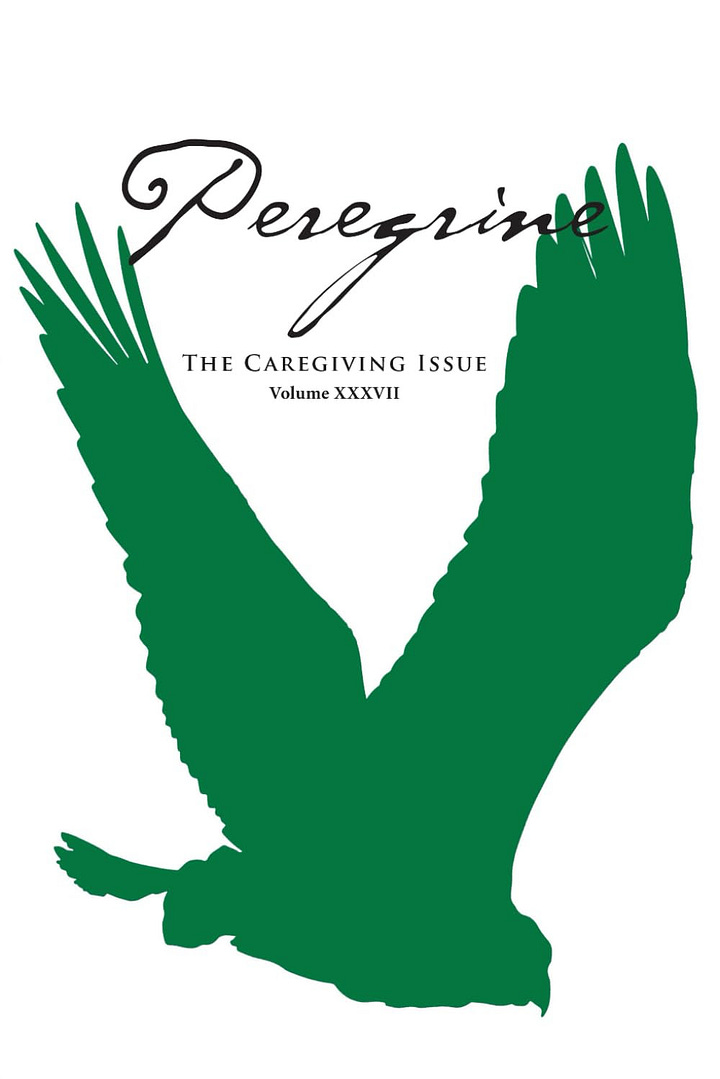

Throughout December AWA is offering single writing sessions online for caregivers. The Caregiver Project is to help those in a caregiving role (personally, professionally, or previously) build resilience and community with peers who have dealt with similar challenges—including stress and isolation—all while exploring creativity.
Registration for one-off events (Dec. 12, 17, 29) is on a donation basis, from $10-$30. Financial assistance is available. Writer Member or AWA Affiliate? One-off Caregiver events count toward one of 8 free online sessions in your annual or monthly dues.
Or sign up to attend a 4-week Caregiver series on Weds. from 10am–12pm PT (1–3pm ET) on January 8, 15, 22, & 29, 2025. The cost for the 4-week series is $80 US.
It’s a chance to connect, express yourself, and have affirmed, through bearing witness and having your own writing listened to, that you are not alone. You do not need to consider yourself a writer to join and benefit from these expressive writing workshops.
monthly online write
Calling all AWA-curious writers (aka anyone who writes)! Yours truly will be the main facilitator in December’s monthly online writing series. I’ll lead a 2-hour Zoom session on Monday, Dec 9, 4–6pm PDT (7–9pm EDT). Offered by AWA each month, it’s an opportunity to experience the AWA Method without signing up for a series.
You’ll write to a couple of prompts I provide, then read your writing aloud (only if you’d like) in smaller breakout sessions led by me or additional AWA facilitators. Any writing that is shared receives affirmative group feedback: no critiques or suggestions.
Tickets are available by donation ($10–20). AWA Writer memberships receive eight Online Writes per year for $5/month or $50/year.
new 2025 workshops
There are two sessions left of my current Wednesday and Thursday AWA series, each with 8 participants. I’m still in the planning stages for workshops starting in January. Typically I offer priority registration to current (or recent) attendees who wish to continue, but I always do outreach to former participants or anyone interested.
I’m also in the process of developing more offerings in 2025—thematic single sessions and workshop series—such as using lit mag prompts to generate new writing or to revise work to submit for publication; personal essay and memoir writing; LGBTQ+ workshops; and a series for just-certified or newly hatched workshop leaders.
writing merry-go-round
My essay “Roadside Markers,” will finally appear in the next issue of Zone 3, a nationally distributed literary journal published twice a year by the Center of Excellence for the Creative Arts at Austin Peay State University in Tennessee. Named for the region’s climate zone, Senior Editor Amy Wright describes the journal as:
“… a kind of agile vehicle capable of bouncing into wilderness areas, across farms and prairies, into the suburbs, and coming up to speed around urban centers.”
The flash piece about a roadside memorial on a rural morning walk was accepted in May, a week after Tahoma Literary Review moved it to their next round of reading. TLR’s nonfiction editor called it “an excellent piece,” but could not commit to publishing the essay, so I withdrew it from consideration in order to say yes to Zone 3.
However, TLR indicated: “I'd love to see more of your work in the future.” In October I sent “Dissolution,” a standalone essay rejected by Your Impossible Voice seven months after I submitted it (see rejection, rejection, rejection in a prior Substack). In just one week (I’d opted for an expedited response) the editor kindly replied:
“I'm sorry to decline ‘Dissolution.’ I remain a fan of your work.
So… I just submitted the essay to the Mirrors issue of Folio, a lit journal sponsored by the College of Arts and Sciences at American University. I was impressed by Kamsy Anyachebelu's hermit crab essay, "Recipe for a Gifted Child," and Barbara Krasner’s short story, “The Newcomer,” winners of the 2024 Folio Nonfiction/Fiction Prizes.
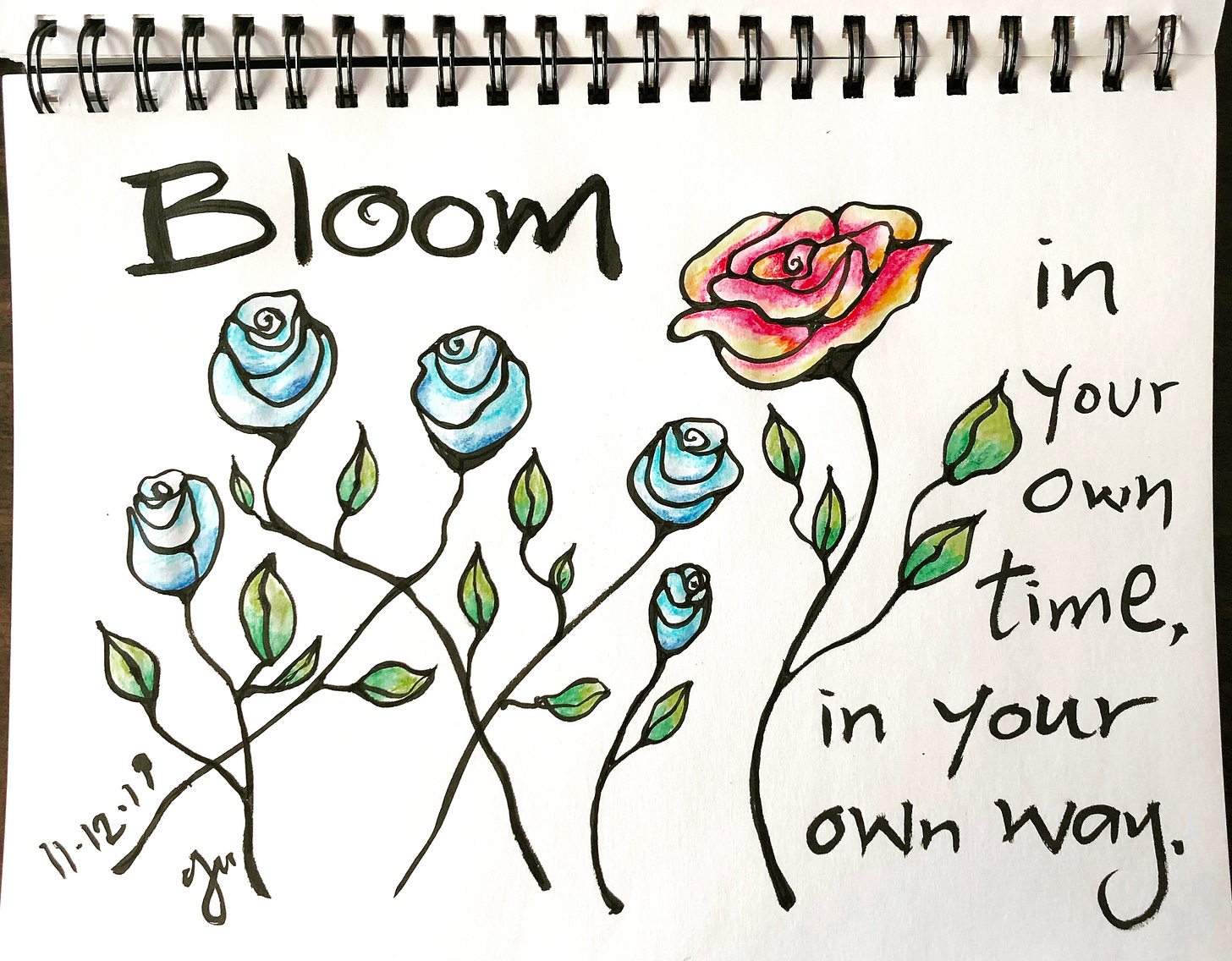
To gauge if a lit mag is a good fit for my writing, I read at least some pieces from one. Here’s a Zone 3 example I admire by Stephanie Mason, whose essay “The Whole Time” was written before the US Supreme Court overturned Roe v. Wade in 2022:
“Perhaps, I considered, the worst, most selfish woman was not the one who got an abortion to avoid the morning sickness which would potentially ruin her wedding, but the one who got an abortion to write a book she had not even begun writing. All these thoughts bubbling up reminded me a woman’s inborn potential is not enough in this world. To simply be or to simply want to be is not enough. The quality and timbre of who, or even more importantly, what she wants to be is on trial and if not a mother, well, it better be good.”
getting to work
Last weekend I saw “Mary Cassatt at Work,” an exhibition of the American modernist (Impressionist) painter, pastel artist, and printmaker at the Legion of Honor.
Cassatt never married and remained childless, but her portraits featured “ ‘women’s work’—knitting and needlepoint, bathing children, nursing infants … particularly focusing on the roles and inner worlds of women and children during the late 19th century … often stereotyped as sentimental,” according to the exhibit.
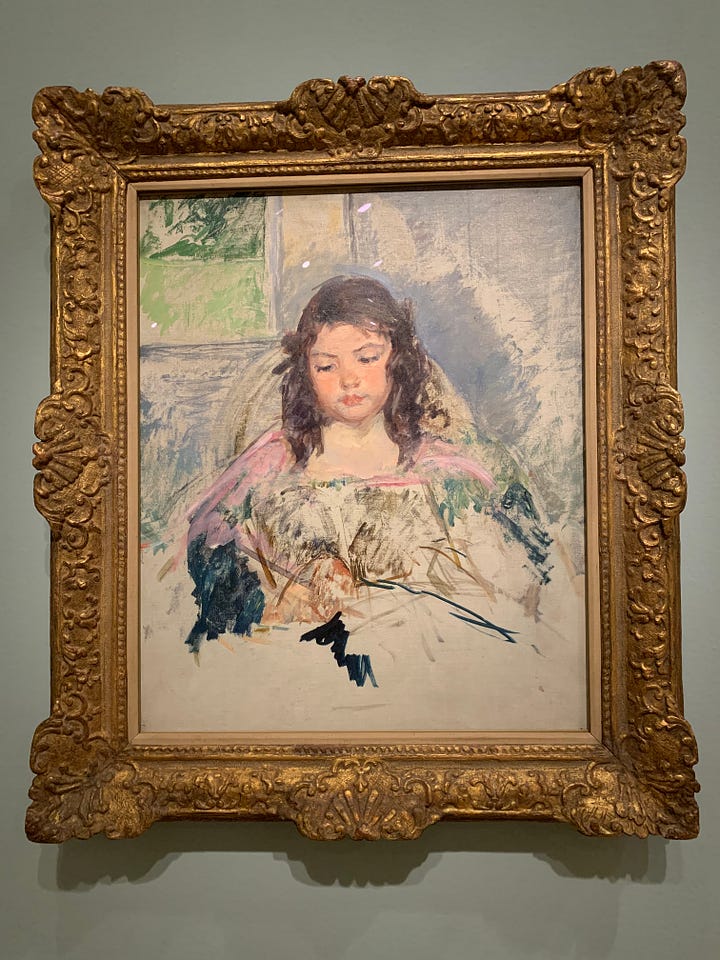
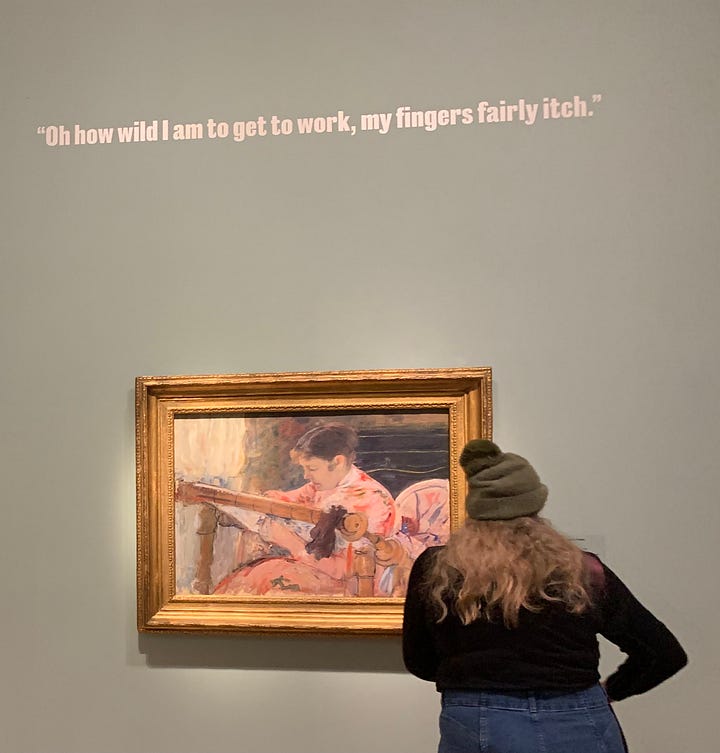
Considered the “most celebrated woman artist of her time,” Cassatt (1844–1926) had to set art-making aside in the early 1880s when her mother’s declining health required her to serve as her caregiver. In a letter to her brother she wrote:
“I have not touched a brush… have not been out of Mother’s room except for a walk…”
pajama planning
After joining a Pajama Planning Day offered by Michelle Ward of Hello Business last November, I signed up for Show Up Squad—a yearly membership for creative entrepreneurs seeking accountability, community, and focus. Michelle’s enthusiasm and the supportive online sessions (coworking; networking; monthly reviews and weekly planning parties; learning labs) all gave me the momentum (and resources) I needed to advance my writing business, Pencil & Pen, with a soon-to-launch website.
If you want a fun, engaging way to review 2024 and lightly plan for 2025 (in your pajamas!), join Michelle for the 8th annual Pajama Planning Day on Friday, December 20, 9–2pm PT/12–5pm ET! Michelle says:
“You’ll reflect on the past year, set your intention for next year, and create a high-level plan alongside other creative entrepreneurs. It's the perfect way to get clarity and direction for your business and life in a supportive, heart-filled community.”
lit mag sub strategies
Last month I moderated a panel discussion (with Barbara Krasner and three other AWA affiliates for a professional development retreat) on finding venues for our writing—especially publications that value diverse voices and styles.
“Submitting to literary magazines can feel overwhelming and discouraging, but it doesn’t have to be that way,” according to Bethany Jarmul, a prolific Appalachian writer and poet. She’s offering a 1.5-hour Zoom webinar on Submission Strategies on Sunday, January 5 at 11am PST (2pm EST) for $15. Bethany will:
“demystify the submissions process and offer practical steps you can take to develop and achieve your writing and submitting goals. You’ll leave this workshop with defined writing goals and a strategy for how to achieve them. Plus, pitfalls to avoid and tips and tricks to get the attention of editors and get your work published.”
Recording are sent to all participants even if you cannot attend live.
kind like Chris
I was touched by all of the replies, texts, emails, and condolence cards I received in response to the tragic death of our nephew by suicide in October, which I wrote about on my Substack on El Dia de los Muertos/Day of the Dead. Monday marks seven weeks (already? only?) since Chris took his life nearly two months after he turned 21.
How many Sundays will pass, I wonder, before I no longer imagine him disappearing into the night, contemplating his escape plan from pain he couldn’t put an end to? Something I read recently helped me to contextualize this epidemic—the second leading cause of death in 2020 for those ages 10 to 14 and 25 to 34: “Suicide is not chosen. It happens when pain exceeds resources for coping with pain.” Surely he didn’t—couldn’t—consider the permanence of it, nor its unintended ripple effect.
The Suicide (by Jorge Luis Borges)
Tonight there won’t be a star left.
Night won’t be left.
I shall die, and with me
The whole intolerable universe.
I shall erase obelisks, coins,
Continents, faces.
I shall erase the accumulation of the past,
Grind history to dust and then grind the dust.
I am watching the last sunset.
I can hear the last bird.
I bequeath nothing, to nobody.
A cousin in her 80s whose brother took his life when she was young told me “grieving eventually slows down … ” Another family survivor of suicide said it hits in waves: “the grief becomes less intense over time, but the sadness is there forever.” I write about my heartbreak in my workshops to prompts like “still in love with this world,” knowing my words are safely held and mirrored back in the AWA method.
Three weeks ago I went to his deathplace under a stand of redwoods where I stood in pouring rain, then walked a small circumference from his home to gym to school to workplace where they’d held a memorial the same week we attended his funeral.
My stepsister gave me the sweet missives his housemates and coworkers wrote. So often we focus on our accomplishments, but it’s kindness that matters in the end. As someone wrote: “I aspire to be ‘kind like Chris.’” Here’s a compilation:
“thank you for laughing at my stupid jokes, for always being a friendly face; for making me feel so welcomed; for always listening to me; for touching all of our hearts with your kindness, youthfulness, and fun; for being a part of my life …
“you were an amazing person, such a pure soul; the most kind; your smile, your kindness, your openness; your love for music; the most radiant smile; you were always a light every day; you were a pleasure to know …
“we will miss you; miss you dearly; mi ninõ Cristo; I miss catching up with you; miss hearing you laugh; going to miss you every day; you’re so loved and missed …
“I’ll always carry you with me; I feel your absence super deeply; you will be forever remembered by us all as the sweetest, goofiest, kindhearted, and hardworking guy; we all love you and are so very blessed to have known you; you were very loved, more than you know; I hope you’re happy, wherever you are; fly high, baby boy.”
The other day I found a birthday card for my 50th, five years before his death. “I’m so thankful that you’re my auntie,” he wrote. “Thanks for giving me all the love throughout these years.” As I noted in my last newsletter, a quote by a mother who lost her son to suicide:
“If love alone could have saved him, he would be here now.”
a final note of hope
On the evening of the 2024 US election, while Donald Trump led the polls with 154 electoral votes vs. Kamala Harris with 30, I joined a weekly Dharma Heart Zen service and jotted down these words from the Lovingkindess Sutra as I heard them:
“Let one not be submerged by the [weight] of the world. May all beings be happy, may they be joyous. Let none by hatred or anger wish harm to another … cherish all living things … suffusing goodness … infinite goodness … endowed with insight … May this world be harmonious, stable, and free from calamity.”

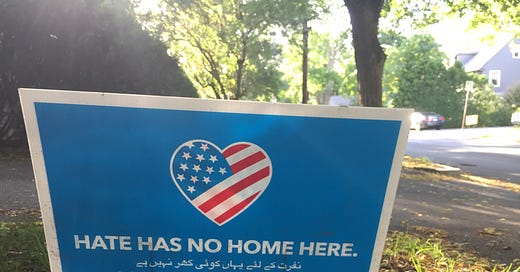





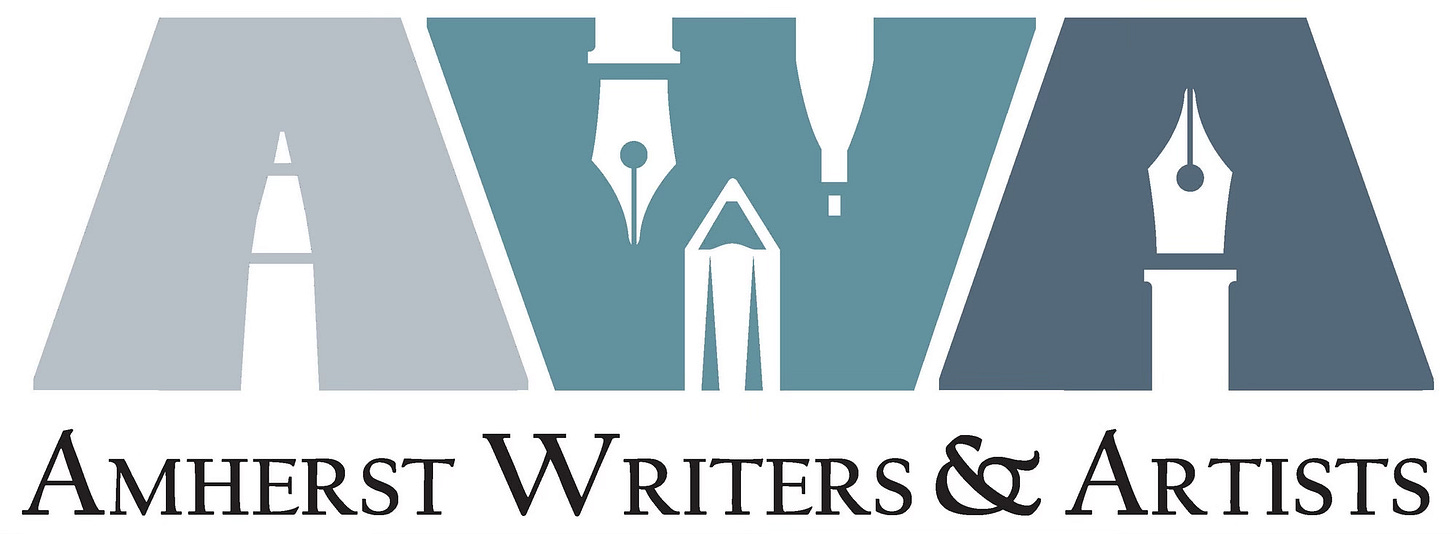


Once again, your newsletter has -- you have -- lifted my spirits. Thank you for sharing your journey in life and writing.